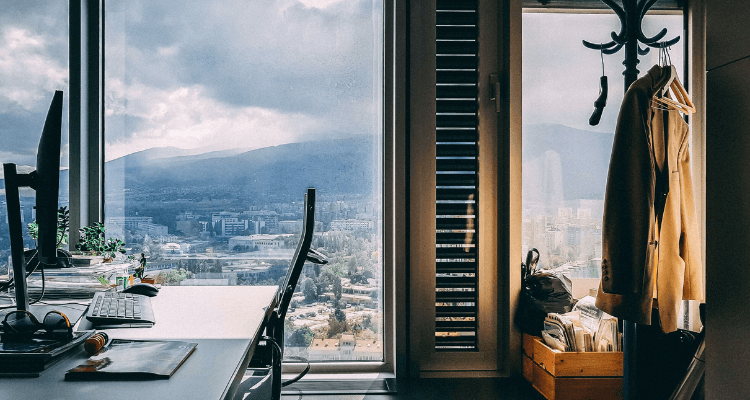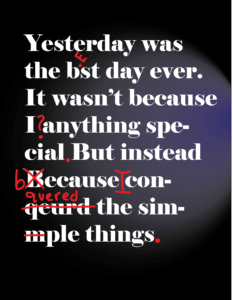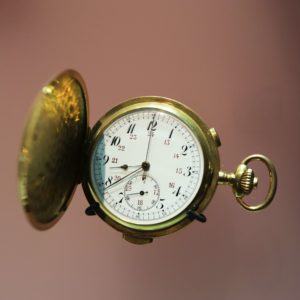Where You Write Matters
What is a writing space?
A writing space or writing room is a place where you write your books, stories, and creative pieces.
Every writer has one, whether we’ve designed it ourselves or whether we know it or not. Because some places just make it easier to write and be creative.
Without going too deep into color theory or ergonomic positioning, I want you to know that everything in your writing space affects how fast you get to your creative finish lines and the quality of your stories.
And you know what – we writers should be the sole catalyst for any change our work undergoes and be able to hone into our stories wherever we write. But environmental influence is often unavoidable for human beings.
So when you’re creating your writing space, know that where you write matters. Starting with generic environmental components that impact our work to those unique sensory things that either help or hurt our writing process.
If your chair is uncomfortable it may impact your writing stamina. Or if the light is too bright it may impact your focus. Or even something like the smell of your space could impact your creativity, motivation, and of course story.
Where you write matters, so even though we aren’t all interior designers, knowing how to create a writing space perfect for your work and writing productivity could change your work for the better.
The Ideal Workspace
Okay, so how do you build the perfect writing space?
Start building a writing space with basic room components that’ll make your space functional and productive.
Pick A Space
The very first thing you want to think about is the where. Where is your writing space going to be? It could be an entire room, an awkward corner, the same place where you do other work, or anywhere you find peace and inspiration.
Look for a space where you’ll write, think, and create. A space that’ll allow you to focus and take your time. A place where you can draw inspiration and ideas for your stories. A space where you can get comfortable and move around. And possibly a place where you could store your work and any paper trail you need to keep for your writing (like research, mail, drafts, books, etc.)
Lighting
The color and brightness of your lights can affect your productivity. With lights too bright or too low, it can be very hard to focus on tasks. And lights that have too calming or too stimulating colors can affect how you focus as well.
Natural light and blue light are great for boosting productivity, energy, and focus. So having a window/great source of natural light along with decent lighting in your space could help you tons.
Colors
Similar to lighting, colors in your writing space can affect your mood, energy, and creativity. This can be the color of the paint in the room or the color of the lights.
Go for colors that keep you focused, working, and inspired.
I found an article by Kinfolk Life that really breaks down how the brightness, hue, &, etc. of colored lights affect your productivity and work mindset. If you’re interested in that stuff, click the link to figure your colored lights out – the article.
Comfortable Chair/Alternating Sitting and Standing
Your comfort levels play a huge factor in your writing stamina and creative flow. Great un-comfortability can cut your writing sessions short and interrupt your creative streams ( you know– the times when you’re “in the zone.” )
Use comfortable chairs when in your writing space and try to alternate working positions: Stand for some time, sit for some time, and maybe take a walk on your break. Wear comfortable clothes and allow yourself some space to move and stretch.
And pay attention to ergonomic rules like:
- Keeping in a neutral position
- Keeping things within reach
- Reducing excessive force
The goal is to move and work comfortably in and around your workspace.
Decorate and Personalize In a Way That Motivates You to Create
Decorating and personalizing a space is not just fun but also a strategic, and effective way to keep yourself motivated, at ease, and authentic. You want to decorate your writing space with things that remind you of your goals, motivate you to keep writing, and boost your creativity.
These “things” can be art from your favorite artist, a printed manifesto of your goals and inspirations, a picture of you and the people you love, quotes from your favorite books & authors, pictures and mini models of things that you want to get in the future, or things that remind you of your stories.
If a bookcase is the focal point of your decoration read this article for 21 aesthetic ways to style it.
Keep Your Space Stocked with Necessary Supplies
You want to keep things you’ll need or usually use stocked in your writing space. Things like pencils and paper are always good to have. Other things that you habitually keep or tend to get up and get (i.e. snacks, chargers, a cardigan, or your glasses) should be kept in your writing room too.
Keeping your space stocked keeps you in your chair and can prevent you from getting distracted by something else on your way to retrieve or find items.
Books – Got to Have Books
I think books are an essential part of any writer’s space. Not only does reading make the perfect break time activity. But books are fundamental references for dialogue, formatting, wording, sentence structure, point of view, and execution.
Having some of your favorite books, dictionaries, thesauruses, and example books in your writing space is a must.
They can also challenge you to write better. A well-written book always fires me up to try something new or re-work my story. So have some of your favs, some classics, and some reference books around close writing help and motivation..
Distractions
You want to keep distractions to a minimum so that you can focus on getting your story done. Put your phone away and turn off your TV shows and streaming stuff so that you can rely, solely, on your creative muscles to write your story.
But don’t isolate yourself from society and hide away in a dark room with absolutely no windows or any way to contact the outside world; There are typical unproductive distractions and good distractions.
Unproductive distractions make you completely forget about what you’re working on and bring you out of focus – away from your goal. Whereas good distractions, like a butterfly in the window or the smell of someone cooking in the next room, can bring inspiration and ideas for what you’re working on right now – closer to your goal. They can also signal a much-needed break
Creating A Space That’s Perfect You
The next set of things you want to focus on is the space components that uniquely affect you. Every writer is different so finding out the sorts of “writing space” things that really fuel you and make a difference in your writing session is crucial.
Apply those unique things to your writing room to make a space where your literary authenticity can excel.
My Perfect Workspace
I recently did a mini-move and my workspace has definitely changed. But I’m not mad at it. Because my creativity was running slowly and starting my space over is seemingly making a positive difference.
Having to start over gave me the opportunity to really look at the things that make me productive and how my workspace can be optimized for even more productivity.
Having natural lights, a good chair, books, scrap paper, and a timer are some things that help to keep me productive. Having snacks, drinks, and a bathroom nearby helps keep me on task. And having old story memos keeps me motivated. I have also found that purple light mixed with a neutral-warm light really sets a productive and creative mood for me.
Adjusting my workspace to my progressing definition of productivity has led to a slew of discoveries.
And paying attention to the things that make or break a better work ethic has really helped me improve my writing quality and motivation.
The Big 2
Planning and creating your perfect writing space could take forever. But it could also take a day.
However long it takes you just remember the big 2 tips to create a writing space that’s perfect for you. 1 – the basic writing space component that makes any space the right space to work and write in. And 2. environmental influences, unique to you, that you can incorporate into your space to allow your literary self to thrive.
Thanks for reading the article. Keep scrolling for more just like it and check out my simple story planner. The planner helps to get the fundamental parts of your story set so that you can focus on the writing. Did I mention that it’s free?
Download the free planner and let me know what you think.
Free Simple Story PlannerDon’t just be a good writer, be a great one!
Until my next words (on here that is),
Christa








